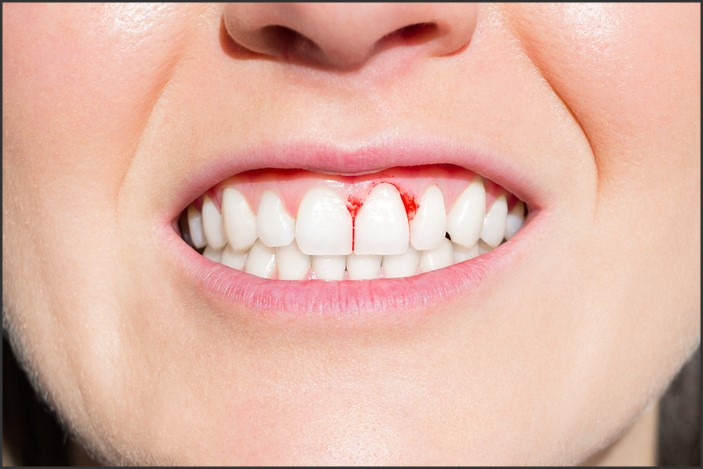
Bleeding gums can be a sign of poor oral hygiene, but it can also be a symptom of a more serious underlying condition. Fortunately, there are a variety of effective treatments available to help treat bleeding gums. In this article, we will discuss the causes of bleeding gums, as well as the various remedies that can be used to treat them. We will also provide tips on how to prevent bleeding gums in the future. By understanding the causes and treatments of bleeding gums, you can take the necessary steps to ensure your oral health is in top condition.
Understanding the Causes of Bleeding Gums and How to Treat Them
Bleeding gums can be a sign of gum disease, which is caused by a buildup of plaque on the teeth. Plaque is a sticky film of bacteria that forms on the teeth and gums. If it is not removed, it can cause inflammation of the gums, leading to gum disease.
The most common cause of bleeding gums is gingivitis, which is an early stage of gum disease. Gingivitis is caused by poor oral hygiene, such as not brushing and flossing regularly. Other causes of bleeding gums include hormonal changes, certain medications, and vitamin deficiencies.
Fortunately, there are several ways to treat bleeding gums. The first step is to practice good oral hygiene. This includes brushing your teeth twice a day with a soft-bristled toothbrush and flossing daily. It is also important to visit your dentist regularly for professional cleanings and checkups.
In addition to good oral hygiene, there are other treatments that can help reduce bleeding gums. These include using an antiseptic mouthwash, taking vitamin supplements, and using a special toothpaste designed for people with gum disease.
If your bleeding gums are caused by a vitamin deficiency, your doctor may recommend taking a multivitamin or supplementing with specific vitamins. If your bleeding gums are caused by a medication, your doctor may recommend switching to a different medication or adjusting the dosage.
If your bleeding gums are caused by gum disease, your dentist may recommend a deep cleaning to remove plaque and tartar buildup. In some cases, surgery may be necessary to treat gum disease.
No matter what the cause of your bleeding gums, it is important to take steps to treat them. By practicing good oral hygiene and following your doctor or dentist’s recommendations, you can help reduce your risk of gum disease and keep your gums healthy.
Natural Remedies for Treating Bleeding Gums: What Works and What Doesn’t
Bleeding gums can be a sign of gum disease, which can lead to more serious health problems if left untreated. Fortunately, there are a number of natural remedies that can help to reduce bleeding and improve gum health. In this article, we’ll discuss what works and what doesn’t when it comes to natural remedies for treating bleeding gums.
One of the most effective natural remedies for treating bleeding gums is oil pulling. This involves swishing a tablespoon of oil (such as coconut or sesame oil) around your mouth for 10-20 minutes. This helps to reduce inflammation and remove bacteria from the gums, which can help to reduce bleeding.
Another natural remedy that can help to reduce bleeding gums is to use a saltwater rinse. Simply mix a teaspoon of salt in a cup of warm water and swish it around your mouth for a few minutes. This helps to reduce inflammation and kill bacteria, which can help to reduce bleeding.
Using a soft-bristled toothbrush and brushing gently can also help to reduce bleeding gums. Brushing too hard can cause irritation and inflammation, which can make the problem worse.
Eating a healthy diet that is rich in vitamins and minerals can also help to reduce bleeding gums. Foods such as leafy greens, nuts, and fish are all good sources of vitamins and minerals that can help to improve gum health.
Finally, it’s important to avoid smoking and drinking alcohol, as these can both contribute to gum disease and make the problem worse.
In conclusion, there are a number of natural remedies that can help to reduce bleeding gums. Oil pulling, saltwater rinses, gentle brushing, a healthy diet, and avoiding smoking and drinking alcohol are all effective ways to improve gum health and reduce bleeding.In conclusion, bleeding gums can be a sign of a serious underlying health condition and should be addressed as soon as possible. While there are many home remedies that can help to reduce the symptoms of bleeding gums, it is important to consult with a dentist or doctor to determine the underlying cause and to receive the most effective treatment. With proper care and attention, bleeding gums can be effectively treated and prevented.